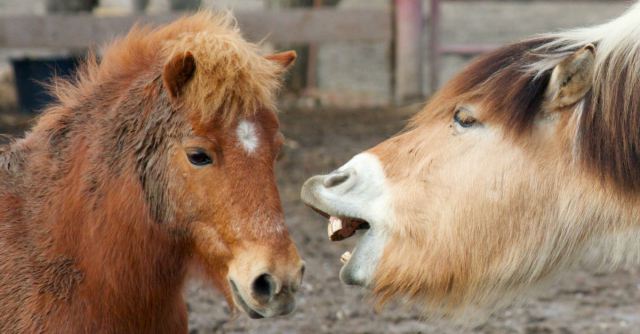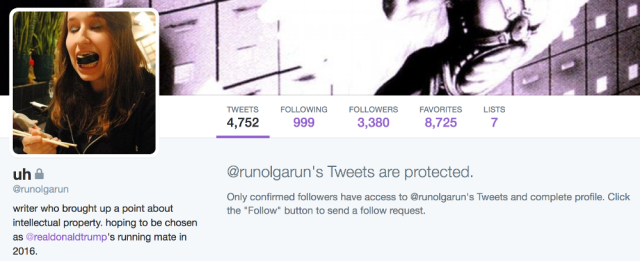You’ll have to stop stealing jokes on Twitter now

There’s a saying (well, there will be soon, because I’m about to say it) that the old jokes are still the best.
That’s because they’ve stood the test of time.
Or if they haven’t stood the test, they’ve at least withstood time.
To wit:
A pony goes into a bar and says, in a scratchy voice, “Ixxxd lichchchche uuuuuh glass of puuuuuluuuchchchchchct, please.”
The barman replies, “I didn’t catch that, I’m afraid.”
So the pony clears his throat with a big whinnnnnnnnnnnnny and a hacking [geddit?] cough, and apologises.
“I’m sorry, I’m a little hoarse.”
You’ve surely heard that joke before, probably in a dozen different guises in a dozen different places.
Indeed, you probably can’t remember where you first heard it.
But that’s all changing in the social media era, because the source of jokes can much more easily be found.
In fact, according to a professional joke-writer going by @runolgarun, Twitter is not only a good place for novel quips, it’s a good place to try out those quips for later use elsewhere.
I presume @runolgarun likes people retweeting her jokes, but what she objects to, understandably, is to people who copy-and-paste her jokes and tweet them instead.
So she’s started using Twitter’s “copyright infringement” reports to get cloned (rather than retweeted) jokes taken down:
The Verge has an example, where the original joke was apparently this:
saw someone spill their high end juice cleanse all over the sidewalk and now I know god is on my side
(No, I don’t get why that’s a joke, assuming that jokes are meant to be funny. But then I don’t know what a “high end juice cleanse” is, so perhaps there’s a risque or edgy angle I’ve missed.)
Searching for that joke on Twitter now produces results like this:

It doesn’t seem to have worked out too well for @runolgarun, though, considering that her Twitter account is now locked down so that only her followers can read it.
Whether that’s to stop people stealing her jokes, or because she’s been bombarded with messages from people who say they resent what they see as censorship is not clear.
Certainly, the Digital Millennium Copyright Act (DMCA), part of the 21st century’s protection against piracy and plagiarism, is not widely popular.
But quite why anyone would consider it “censorship” to stop person X from presenting person Y’s material as if it were their own original work is not clear.
Ripping off other people’s stuff, even jokes, is no laughing matter!
Image of horse courtesy of Shutterstock.
Article source: http://feedproxy.google.com/~r/nakedsecurity/~3/CKLns7v3V8M/
